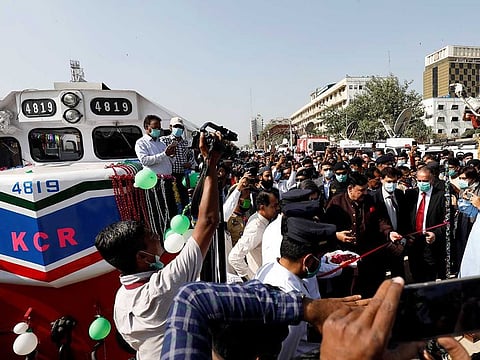Karachi Circular Railway to be revived as part of CPEC
Assurance comes after top-level delegations of China and Sindh governments hold talks

Karachi: The Chinese authorities have assured the Sindh government that the project to revive Karachi Circular Railway (KCR) as a modern commuter train service in the provincial capital will be formally included in the list of development schemes to be completed under China Pakistan Economic Corridor (CPEC).
The assurance to this effect came as the top-level delegations of China and the Sindh government held talks here at Sindh Chief Minister House. The Chinese delegation was headed by Ambassador of China in Pakistan Nong Rong while Sindh CM Syed Murad Ali Shah led the Sindh government’s side in the talks.
Sindh CM recalled that the circular railway had earlier become a part of the CPEC on the request of his government on December 3, 2016. The circular railway was also included on the agenda of 6th meeting of the Joint Coordination Committee (JCC) of the CPEC.
He said all such meetings relevant to the CPEC had termed the KCR a feasible project that could be implemented but a number of bureaucratic, financial, and administrative formalities had yet to be completed.
He informed the Chinese delegation that the 9th meeting of the JCC had once again discussed the KCR as it was decided that Pakistan would formally request China to provide financial assistance for this.
He said the services of Frontier Works Organisation had been engaged to build underpasses and flyovers in Karachi along the proposed route of KCR.
The Chinese delegation also assured the Sindh government to construct the Keti Bandar energy project under the CPEC regime.
Sindh CM informed the delegation that Keti Bandar was located on the coast of the province at a distance of 107km from Thatta city. The project envisages establishing a power generation plant to generate 1320 Megawatts electricity as a railway line will also be a part of the project to transport coal from Thar desert area for power production.
Sign up for the Daily Briefing
Get the latest news and updates straight to your inbox









